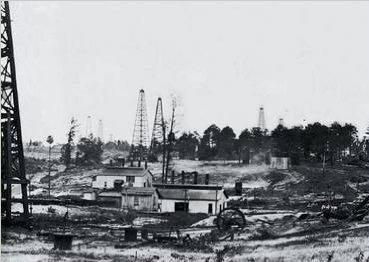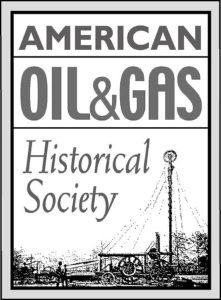
Home Oil & Development Company
Home Oil & Development Company left better tracks in legal documents than in the oil patch.
“For quickness of action in the formation of an oil company and the sale of stock the Home Oil and Development Company holds the record,” declared the The Lafayette Gazette on October 5, 1901. “This company was organized last Friday morning and by Saturday evening, the ground had been secured for drilling and a man sent to purchase the necessary machinery for drilling. Monday morning they were authorized to sell seventy thousand shares at 33 and 1/3 cents per share. This morning all the stock is sold. They will begin work next week.”
Despite being at the heart of Louisiana’s first oil boom, which between 1902 and 1908 produced virtually all of of the state’s oil, the company failed. Louisiana court records reveal Home Oil & Development ‘s demise in cases (no. 4374, no. 5021, no. 4733), and finally in the Louisiana Supreme Court (no. 15,468). A Louisiana company born to exploit the newly discovered Jennings oilfield, Home Oil & Development was insolvent within five years of its creation. Irate stockholders brought suit to recover some part of their lost investments.

“Early Louisiana and Arkansas Oil: A Photographic History, 1901 – 1946” by Kenny Arthur Franks and Paul F. Lambert includes images of Home Oil & Development Company.
Among the complainants were the Heywood brothers, whose discovery of the first Louisiana oil well in September 1901 had spawned a boom in drilling – and speculation.
By 1902, Home Oil & Development litigation in the Louisiana Supreme Court revealed that at the time of the bankruptcy, “The only asset owned the corporation consists of the amounts owing to it by its stockholders on the unpaid portion of the purchase price of the stock held and owned by them.”
With this rationale, those stockholders whose subscriptions were fully paid, “seek to obtain a personal judgement for the amount…against some few of its individual stockholders, claiming that they have not paid to it the full amount of their subscription to stock.”
The court did not agree, noting “the proper result should not be for individual creditors to institute individual actions inuring to their separate benefit and advantage.” The court concluded that the affairs of the corporation “should be placed in liquidation in the hands of some officer or officers acting in the interest of and for the benefit of all parties concerned.”
___________________________________________________________________________________
The stories of exploration and production companies joining petroleum booms (and avoiding busts) can be found updated in Is my Old Oil Stock worth Anything? The American Oil & Gas Historical Society preserves U.S. petroleum history. Please support this AOGHS.ORG energy education website. For membership information, contact bawells@aoghs.org. © 2018 Bruce A. Wells.
___________________________________________________________________________________

